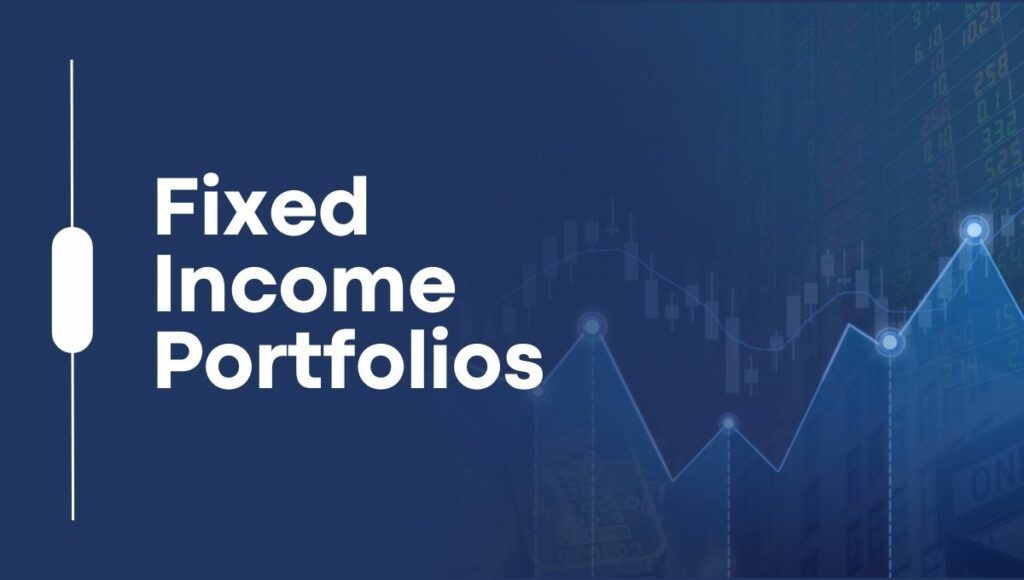The financial world has been buzzing about rising interest rates, and a finance professional such as you cannot help but think about how that affects your investment strategy. With the Indian economy constantly in evolution, the correlation between interest rates and fixed-income portfolios needs to be understood clearly. If you are managing or investing in fixed income instruments, read on for more details on interest rates and its deep impact on your portfolio.
Understanding Fixed Income Investments
Fixed income is the class of investments that provide a regular income in the form of interest payments and return the principal upon maturity. Common fixed income securities include bonds, treasury bills, and certificates of deposit. These investments are generally considered safer than equities but are not immune to market changes, especially when interest rates shift.
As a finance professional, you’ve likely noticed that interest rates and fixed income are closely intertwined. The Reserve Bank of India’s (RBI) monetary policies significantly influence the interest rates in India, making it vital to understand their impact on fixed income portfolios.
The Connection Between Rising Interest Rates and Fixed Income
When interest rates rise, the value of outstanding fixed income securities generally falls. Why? The reason is simple: new bonds offer higher interest rates, making older bonds with lower yields less attractive. This relationship is at the heart of the bond market and directly influences fixed income portfolios.
Key Impacts:
Bond Prices Decline: When interest rates increase, the price of bonds decreases. This inverse relationship can lead to capital losses if bonds are sold before maturity. Investors holding long-term bonds may feel the impact more acutely as the decrease in value is greater for bonds with longer durations. Therefore, understanding and managing duration is critical for mitigating potential losses.
Yields: In the event of increasing rates, there is a scope for higher yield bonds. Opportunities to reinvest come with this type of rising rate environment, where investors could reap better yields if they respond fast enough with new instruments that may help cushion losses from old bonds.
Portfolio Duration Risk: Because long-duration bonds are more interest rate sensitive, this increases portfolio risk. Hence, it’s essential for an investor to be able to consider his or her overall portfolio’s duration and the required adjustments for that. Thus, opting for shorter-duration bonds or laddering strategies are viable options to ensure the stability of a portfolio under uncertainty.
Rising Interest Rate Effects on Indian Fixed Income Portfolios
-
Bond Market Trends 2024
The Indian bond market has been resilient but is not impervious to global and domestic interest rate shifts. With expected rate hikes in 2024, professionals managing fixed income portfolios must stay vigilant. Staying updated with policy announcements and market trends is crucial for making timely decisions.
-
Credit Spreads Widen
Higher interest rates often increase credit spreads. Corporate bonds can become riskier than government bonds, which affects the performance of a portfolio. Credit ratings and industry risks must be closely examined by investors when making investments to avoid possible downgrades
-
Liquidity Crunch
Inversely, higher rates may shrink liquidity, thereby affecting the liquidity of bonds in the market. Liquidity turns into one risk factor for short-term investment strategies. Proper liquidity management helps maintain sufficient cash flow to take care of obligations and reinvestment opportunities.
Risk Management for Fixed Income Portfolios
-
Diversification
Hold a widely diversified portfolio of investments with various duration characteristics. In this case, a diversified portfolio could help absorb a potential boost in rates.
-
Short Duration Bonds
Consider moving towards shorter-term bonds, which are less sensitive to interest rate changes. These are more stable in a volatile rate environment.
-
Active Portfolio Management
Regularly review and rebalance your portfolio. Active management allows you to take advantage of market trends and minimize risks.
-
CFO Course for Advanced Strategies
If you’re looking to enhance your understanding of fixed income strategies, consider enrolling in a CFO course. Such programs provide insights into managing portfolios effectively in changing economic conditions.
Interest Rates and Investments: Strategic Insights
Rising interest rates are not entirely detrimental. They also open avenues for higher income opportunities in new investments. Here are some strategic moves:
Reinvestment Opportunities: Use higher rates to reinvest matured bonds at better yields.
Floating Rate Instruments: Invest in floating rate bonds whose yields move by market rates.
Focus on Credit Quality: Focus on getting higher-rated securities to reduce credit risk during uncertain times.
FAQs on Fixed Income and Rising Interest Rates
- How do rising interest rates impact bond prices?
Rising interest rates make bond prices decrease because newly issued bonds with higher yields are more desirable, reducing the demand for older bonds.
- Best strategy for fixed income portfolios when rates are rising?
Keep on focusing on short-duration bonds, diversify the portfolio, and explore floating rate instruments.
- How to learn about fixed income portfolio management?
Take up a CFO course that can enhance your advanced knowledge and strategies regarding interest rate change.
- Are fixed income investments a good choice in the rising rate environment?
Yes, but the selection of instruments and strategies should be in line with the prevailing economic scenario and interest rate trends.
Conclusion
Rising interest rates bring both challenges and opportunities for fixed-income portfolios. By analyzing trends in the bond markets for 2024 and implementing proactive strategies, investors can protect investments and capitalize on new opportunities. For a finance professional from India, this becomes quintessential towards the long-term success of one’s career. In a rising interest rate scenario, one should know the skills, vigilance, and knowledge base to understand fixed-income investments. Continue to learn and grow to get ahead of the game.

